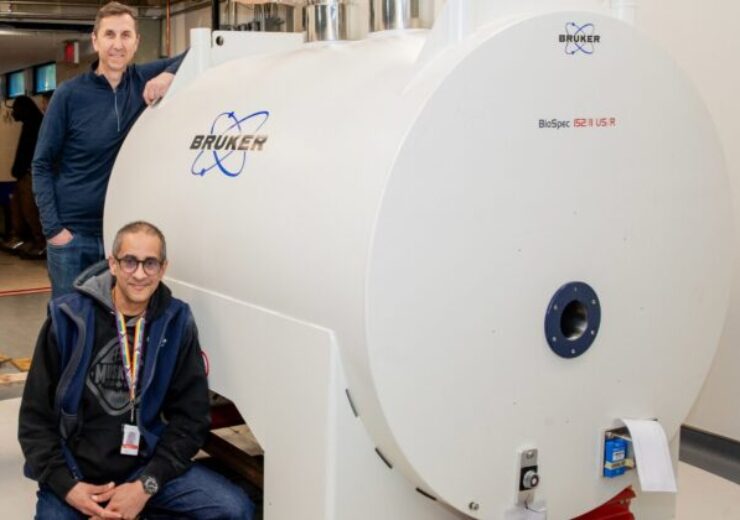The Ontario-based university expects the new MRI system to support interdisciplinary research centred on neurological disorders

Western University acquires a Bruker 15.2 tesla MRI system. (Credit: Christopher Kindratsky/Western Communications)
Western University, a Canadian public research university, said that the Centre for Functional and Metabolic Mapping (CFMM) at its Schulich School of Medicine & Dentistry has received the 15.2 tesla magnetic resonance imaging (MRI) system from Bruker.
The C$6m ($4.4bn) pre-clinical scanner will be a significant advancement for neuroimaging research, empowering its researchers to examine the brain with unparalleled resolution, said Western University.
According to the Ontario-based university, the new MRI system will support interdisciplinary research centred on neurological disorders. This includes a neuroimmunology research led by Robyn Klein and a multi-centre project under Ravi Menon, which revolves around the development of drugs for neurological conditions.
Menon said: “This is one of the most powerful MRI systems in the world.
“The unprecedented spatial resolution and unique image contrast will help advance our understanding of neurological processes and assess new treatments in mouse models of disease.”
Additionally, the Bruker tesla MRI system will give opportunities for trainees to acquire hands-on experience with state-of-the-art technology and advanced imaging techniques, said the university.
Situated at the Robarts Research Institute, CFMM is said to host the most advanced ultra-high field MRI platform in Canada. The platform features Siemens 3T and 7T human MRI scanners, along with a Bruker 9.4T pre-clinical scanner.
The newly acquired Bruker 15.2T preclinical system will be placed in a biocontainment level 2 facility at CFMM. This specialised facility is tailored for research involving infectious pathogens and other biological materials.
The pre-clinical scanner is anticipated to be operational by mid-2024.
Menon said: “With the 15.2T MRI system, Western will be well-positioned to attract top-tier researchers and collaborators and expand its leadership in imaging and neuroscience research.”
